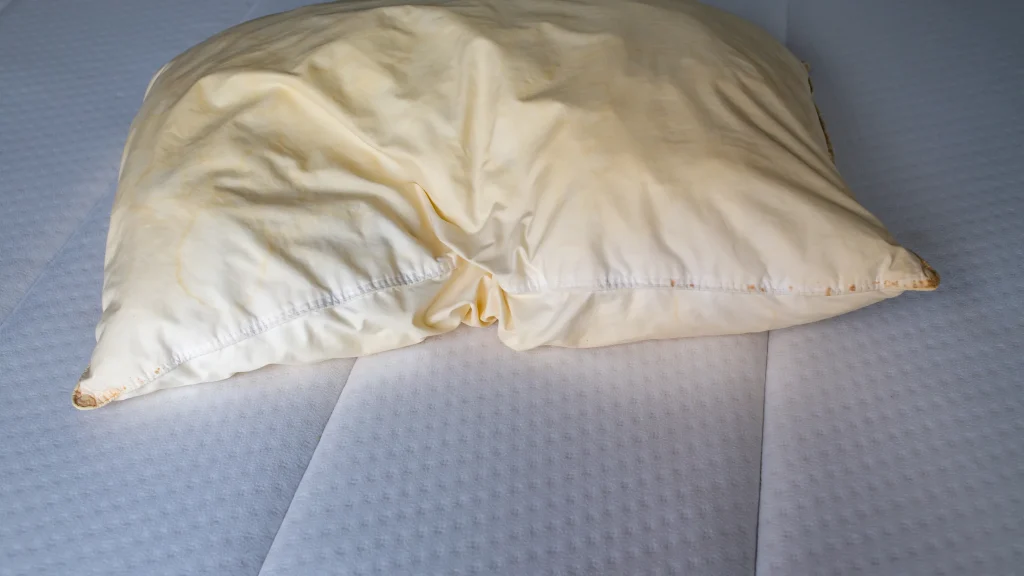Your pillow, the unsung hero of your sleep sanctuary, might be silently sabotaging your health. While it may seem like an innocent piece of bedding, the wrong pillow can lead to a host of health problems, from chronic neck pain to sleep disturbances. In this article, we delve into the potential health hazards lurking within your pillow and how to ensure a restful night’s sleep.
The Silent Culprit: Your Pillow
Your pillow plays a crucial role in maintaining proper spinal alignment during sleep. When your head and neck are not supported correctly, it can lead to a cascade of problems. Here are some common health issues that can arise from a subpar pillow:

Neck and Shoulder Pain: A pillow that is too high or too low can strain your neck muscles, leading to chronic pain and stiffness.
Headaches: Poor neck alignment can trigger tension headaches, especially upon waking.
Sleep Disturbances: An uncomfortable pillow can disrupt your sleep cycle, leaving you feeling tired and groggy throughout the day.
Allergies and Respiratory Issues: Pillows can harbor dust mites, mold, and other allergens that can exacerbate respiratory problems like asthma and allergies.
Signs Your Pillow Needs Replacement
It’s essential to be aware of the signs that your pillow has reached its end of life:
Loss of Shape: A lumpy or flat pillow no longer provides adequate support.
Yellowing or Staining: This indicates the presence of sweat, oils, and other contaminants.
Musty Odor: A foul smell is a sign of bacterial growth and potential allergens.
Frequent Waking: If you’re tossing and turning throughout the night, your pillow might be the culprit.
Choosing the Right Pillow for Your Sleep Style
The ideal pillow for you depends on your preferred sleeping position:
Back Sleepers: Opt for a medium-firm pillow that supports the natural curve of your neck.
Side Sleepers: A thicker pillow that fills the space between your head and shoulder is recommended.
Stomach Sleepers: A thinner pillow can help prevent neck strain.
Pillow Care Tips
To prolong the life of your pillow and maintain its hygiene, follow these tips:
Regular Cleaning: Wash your pillow according to the manufacturer’s instructions.
Pillow Protectors: Use pillow protectors to shield your pillow from sweat, oils, and allergens.
Replacement: Replace your pillow every 1-2 years to ensure optimal support and hygiene.
Conclusion
Your pillow is more than just a comfort item; it’s a crucial component of your sleep health. By choosing the right pillow and practicing proper care, you can significantly improve your sleep quality and overall well-being. Don’t let your pillow sabotage your health; make the investment in a quality pillow that will support you through the night.





